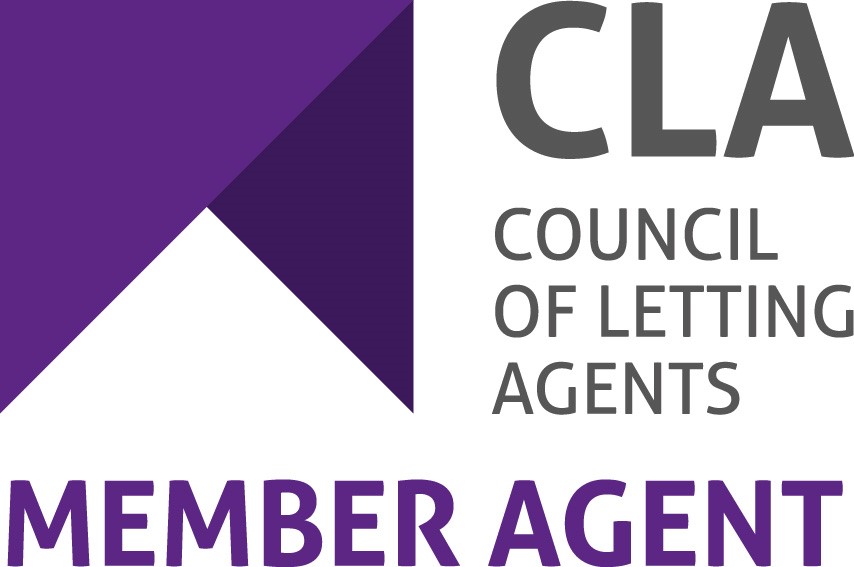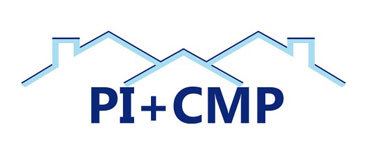Landlords
If you currently own or intend to purchase residential property for rental, you should consider engaging our property management service. You'll find it both professional and cost-effective. As we are specialists, we know how to manage property for optimum performance, whilst ensuring smooth running tenancies, and compliance with the various landlord/tenant laws. Here are just a few of our landlord testimonials -
"As a new landlord, and unaware of all the various certifications required for letting, I was very grateful for all the information and help that I received from Ferry Lettings. You were always on hand to help out and advise on any query or problem I had. I would highly recommend Ferry Lettings to any prospective Landlord". G. Palmer, Dundee
"I found the service very professional and would highly recommend Ferry Lettings to other Landlords". J. Fernie, Dundee
"In September, 15, upon seeking an agent to assist us to let our property I sourced a few on the web. Choosing Ferry Lettings was compounded by using no jargon information contained on the web.
First face to face contact was with Jack. First impressions last, his gentle mannerism and deportment put myself and my wife at ease, along with his professional knowledge and advice given to us to get the best from our investment was excellent.
Since taking over our property, we have been highly impressed with the service". C. Millar, Essex
Maximise the return on your investment - contact us now.
Back to top
The Benefits of using Ferry Lettings
OUR FEES
FREE
- Impartial advice from experienced property professionals.
- Guide to preparing to be a Landlord.
- Rental valuation.
LETTING FEE £150 (Unfurnished) £200 (Furnished)
- All checks to ensure property is ready to let and meets all regulatory requirements.
- Preparation of marketing materials.
- Advertising in branch window located in main thoroughfare in Broughty Ferry’s Brook Street.
- Advertising on Ferry Lettings website.
- Advertising on websites and mobile apps to include Zoopla, Lettingweb and Primelocation, The Times, The Sunday Times, Telegraph, Mail Online, Barclays, AOL, Halifax, Barclays, Johnston Press.
- Advertising on Social Media platforms to include Facebook, Lettingweb Social and Twitter.
- Initial screening of applicants.
- Accompanied viewings.
- Vetting of tenant including, Credit check, Landlord reference, Employers reference, Tribunal check and ID check.
- Preparation of Private Residential Tenancy Agreement.
- Preparation of detailed inventory to include photos.
- Gas and electricity readings and informing Council Tax office.
- Registering and lodging deposit with third party.
MANAGEMENT FEE 11.5%
- Rent collection.
- Monthly statement.
- Handling maintenance requests.(Including Out of Office Hours)
- First month and then 6 monthly inspections.
- Ensuring property is kept up to date with current regulations.
- Ending the Tenancy Agreement in accordance with current legislation.
- End of tenancy check out inspection. (Including Final Meter Readings)
- Recommendations for pre-let.
Back to top
Guide for Landlords
Before a property can be let, there are several matters which the owner will need to deal with to ensure that the tenancy runs smoothly, and also that they comply with the law. We provide summarised information below. If you require further advice or assistance with any matter, please do not hesitate to contact us.Preparing the Property We have found that a good relationship with Tenants is the key to a smooth-running tenancy. As Property Managers this relationship is our job, but it is important that the Tenants should feel comfortable in their temporary home, and that they are receiving value for their money. It follows therefore that a well presented and maintained property in a good decorative order will go towards this, whilst also achieving a higher rental figure. Tenants are also more inclined to treat such a property with greater respect.
General Condition
Electrical, gas plumbing, waste, central heating and hot water systems must be safe, sound and in good working order. Repairs and maintenance are at the Landlords expense unless misuse can be established. Interior decorations should be in good condition and preferably plain, light and neutral.Furnishings
Your property can be let fully furnished, part furnished or unfurnished. Which of these is appropriate will depend on the type of property and local market conditions. We will be pleased to give you advice on whether to furnish or not and to what level. As a minimum you will need to provide decent quality carpets, curtains and light fittings. Remember that there will be wear and tear on the property and any items provided.Back to top
Personal items, ornaments etc.
Personal possessions, ornaments, pictures, books etc. should be removed from the premises, especially those of real or sentimental value. All cupboards and shelf space should be left clear for the Tenant's own use.Gardens
Gardens should be left neat, tidy and rubbish free, with any lawns cut. Tenants are required to maintain the gardens to a reasonable standard, provided they are left the necessary tools. However, few Tenants are experienced gardeners, and if you value your garden, or if it is particularly large, you may wish us to arrange visits by our regular gardener.Cleaning
At the commencement of the tenancy the property must be in a professionaly clean condition, and at the end of each tenancy it is the Tenants' responsibility to leave the property in a similar condition. Where they fail to do so, cleaning will be arranged at their expense.Information for the Tenant
It is helpful if you leave information for the Tenant, e.g. on operating the central heating and hot water system, washing machine and alarm system, and the day refuse is collected etc.Keys
You should provide one set of keys for each Tenant. Where we will be managing we will arrange to have duplicates cut as required.Back to top
Mortgage
If your property is mortgaged, you should obtain your mortgagee's written consent to the letting. They may require additional clauses in the tenancy agreement of which you must inform us.The inventory
It is most important that an inventory of contents and schedule of condition be prepared, in order to avoid misunderstanding or dispute at the end of a tenancy. Without such safeguards, it will be impossible for the Landlord to prove any loss, damage, or significant deterioration of the property or contents. To provide a complete service, we will arrange for a member of staff to prepare an inventory and schedule of condition.Insurance
You should ensure that you are suitably covered for letting under both your buildings and contents insurance. Failure to inform your insurers may invalidate your policies.Buildings & Contents
Their comprehensive and competitively priced policies have been specifically designed for the specialist landlords' needs as well as offering a monthly premium option.
The minimum required for a Landlord is Buildings Insurance but many insurance companies have different levels of cover.
A) Buildings Only
B) Buildings and White Goods (cooker, fridge etc)
C) Buildings and Landlords Contents
Rent Guarantee
Some Insurance Companies can provide you with a special legal expenses and rent guarantee insurance. Make sure your rental income is protected -
Choose the most appropriate cover for you, with 6 and 12 month policies available
Bills and regular outgoings
We recommend that you arrange for regular outgoings e.g. service charges, maintenance contracts etc. to be paid by standing order or direct debit. However where we are managing the property, by prior written agreement we may make payment of certain bills on your behalf, provided such bills are received in your name to our contact address or email.Council tax and utility accounts
We will arrange for the transfer of Council Tax and utility accounts to the Tenant. Meter readings will be taken, allowing your closing gas and electricity accounts to be drawn up.Back to top
Income tax
When resident in the UK, it is entirely the Landlords responsibility to inform the Revenue & Customs of rental income received, and to pay any tax due. Where the Landlord is resident outside the UK during a tenancy, he will require an exemption certificate from the Revenue & Customs before he can receive rental balances without deduction of tax. Where we are managing the property we will provide advice and assistance on applying for such exemption.
We are legally bound to provide HMRC with an annual return of the income received from us by all of our landlords. They use this to check your returns.
Legal Obligations on Landlords
The material to which a local authority must have regard, under section 86, in deciding whether an applicant is a fit and proper person to act as a landlord, includes material which shows that the applicant has "contravened any provision of the law relating to housing, or landlord and tenant law." This Section provides a brief guide to the range of issues which are covered by those legal requirements. The exact obligations on landlords depend on the type of tenancy or occupancy arrangement in place.Landlord Registration:
Since 30 April 2006, all private landlords in Scotland (with a few exceptions) are required to register with their local authority to ensure that they are a "fit and proper person" to let property. It is an offence to let any house without being registered.
Repairing Standards
The landlord must keep the accommodation wind- and watertight and generally fit for human habitation (in practice this normally means the house should meet the Tolerable Standard). In particular, the landlord is responsible for keeping the structure and exterior of the property in good repair, including drains, gutters and external pipes, and must make sure the installations for the supply of water, electricity and gas, and the appliances for heating the house and heating water, are kept in good repair and in working order.
Back to top
Tenancy Agreement
The tenant must be given details of the landlord's name and address, and the name and address of their agent, if they use one. Where an assured or short assured tenancy exists, a written agreement must be provided.Charges
- Various rules apply to the charging and handling of rents and deposits:
- No charge must be made for a person to have their name put on a list for accommodation
- No charge must be made for drawing up or copying the tenancy agreement
- If a deposit is required, it must be no more than the equivalent of two months' rent
- The tenant cannot be required to pay rent before the start of the rental period to which it relates
- Proper procedures must be followed before changing the amount of rent to be charged
Eviction
Correct legal procedures for seeking possession of the accommodation (if the tenant does not leave when they are asked to). In most cases this means giving proper notice, and ultimately getting a Court Order. Under the Rent (Scotland) Act 1984, it is a criminal offence to evict a tenant unlawfully, or to use harassment to try to make them leave.Fire
All furniture and furnishings provided by the landlord must comply with the Furniture and Furnishings (Fire)(Safety) Regulations 1988. The Furniture and Furnishings (Fire) (Safety) Regulations 1988 (amended 1989 & 1993) provide that specified items supplied in the course of letting property must meet minimum fire resistance standards. The regulations apply to all upholstered furniture, beds, headboards and mattresses, sofa-beds, futons and other convertibles, nursery furniture, garden furniture suitable for use in a dwelling, scatter cushions, pillows and non-original covers for furniture. They do not apply to antique furniture or furniture made before 1950, bedcovers including duvets, loose covers for mattresses, pillowcases, curtains, carpets or sleeping bags. Items which comply will have a suitable permanent label attached. Non-compliant items must be removed before a tenancy commences.Back to top
Electrical
The landlord has a general duty to make sure that the electrical installations and appliances provided as part of the let are safe to use (Electrical Equipment (Safety) Regulations 1994). The landlord must comply with any statutory notices requiring property he or she owns to be repaired, brought up to a higher standard, closed or, if it is an HMO, provided with additional facilities or means of escape from fire.Gas
The landlord must have any gas appliances checked annually by a Gas Safe registered contractor, and obtain a gas safety certificate. He must provide tenants with a copy of the certificate, and keep the records for at least 2 years (Gas Safety (Installation and Use) Regulations 1998).Discrimination
In addition, the local authority must consider whether the applicant has "practised unlawful discrimination on grounds of sex, colour, race, ethnic or national origins or disability in, or in connection with, the carrying on of any business".- The Equal Opportunities on the duty to make reasonable adjustments to make their services accessible to disabled people. Commission provides advice on its website for organisations and individuals who provide accommodation.
- The Commission for Racial Equality has produced a Rented Housing Code of Practice to help landlords comply with their duties under the Race Relations Act 1976.
- The Disability Rights Commission provides extensive guidance for suppliers of goods and services (which includes landlords).
The Energy Performance of Buildings
From 4th January 2009 landlords offering property to let are required by law to provide prospective tenants with an Energy Performance Certificate for their property.A new certificate will not be required on each let since, in the case of rental property, EPCs will be valid for 10 years.
The certificates (EPCs) will have to be provided free either when (or before) any written information about the property is provided to prospective tenants or a viewing is conducted.
We have a database of registered energy assessors, and we will be pleased to arrange an EPC inspection and assessment on your property upon request.
Please note that we cannot market your property to let until we have in our possession a valid EPC for the property.
Back to top
House in Multiple Occupation
The owner of an HMO must hold a licence from the local authority and must comply with the conditions of that licence.Is your property a House in Multiple Occupation (HMO)?
Mandatory licensing of houses in multiple occupation (HMOs) was introduced in October 2000. A licence is required for every house or flat where three or more people live who are not all members of one family or of one or other of two families. The house must be their only or main home. Flats or bedsits which are otherwise separate are considered part of one house if they share cooking, washing or toilet facilities. Resident landlords and members of their family living with them are not counted in calculating the number of occupants, so they only need a licence if they have three or more tenants living with them. The owner of the house is responsible for obtaining an HMO licence from the local authority. Before awarding a licence, the authority will make sure that acceptable standards are met in three categories.- Fit and proper person - the landlord, and any agent managing the property, must be considered a fit and proper person to hold a licence. The local authority will decide this based on individual circumstances.
- Tenancy management - ensuring there are proper tenancy agreements which set out the rights and responsibilities of the tenants and the landlord. This should prevent exploitation or harassment of tenants, and should also help in taking action if tenants' behaviour causes any nuisance to neighbours.
- Physical conditions - including space, facilities for cooking and washing, and safety of the building.
Investment
With typical returns of up to 7% achievable on capital investment in residential property to let in much of the UK, the buy-to-let market provides a highly efficient long-term investment medium.Pre-purchase guidance
Our considerable local experience in this field, together with our independent status, means that we are able to provide practical and impartial advice on such matters as the type of property and the area that you should consider, and also on a choice of lenders to approach to suit your circumstances. Pre-purchase guidance is available free of charge.Ongoing management
Our Letting and Management Service is summarised at the top of this page.We hope that you find the above information useful. If there are any aspects of which you are unsure, please ask us. We look forward to being of assistance to you in the letting and management of your property.






